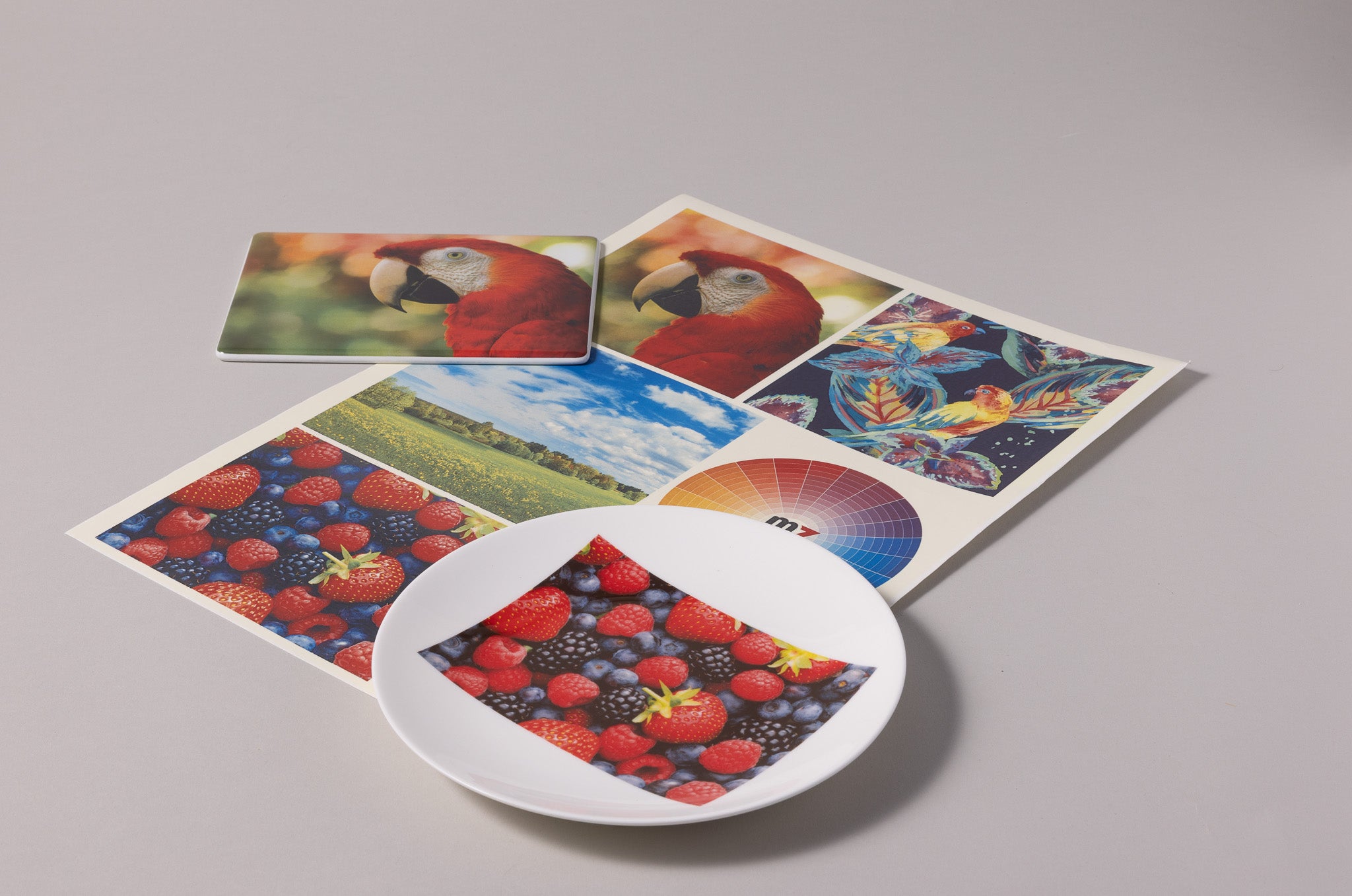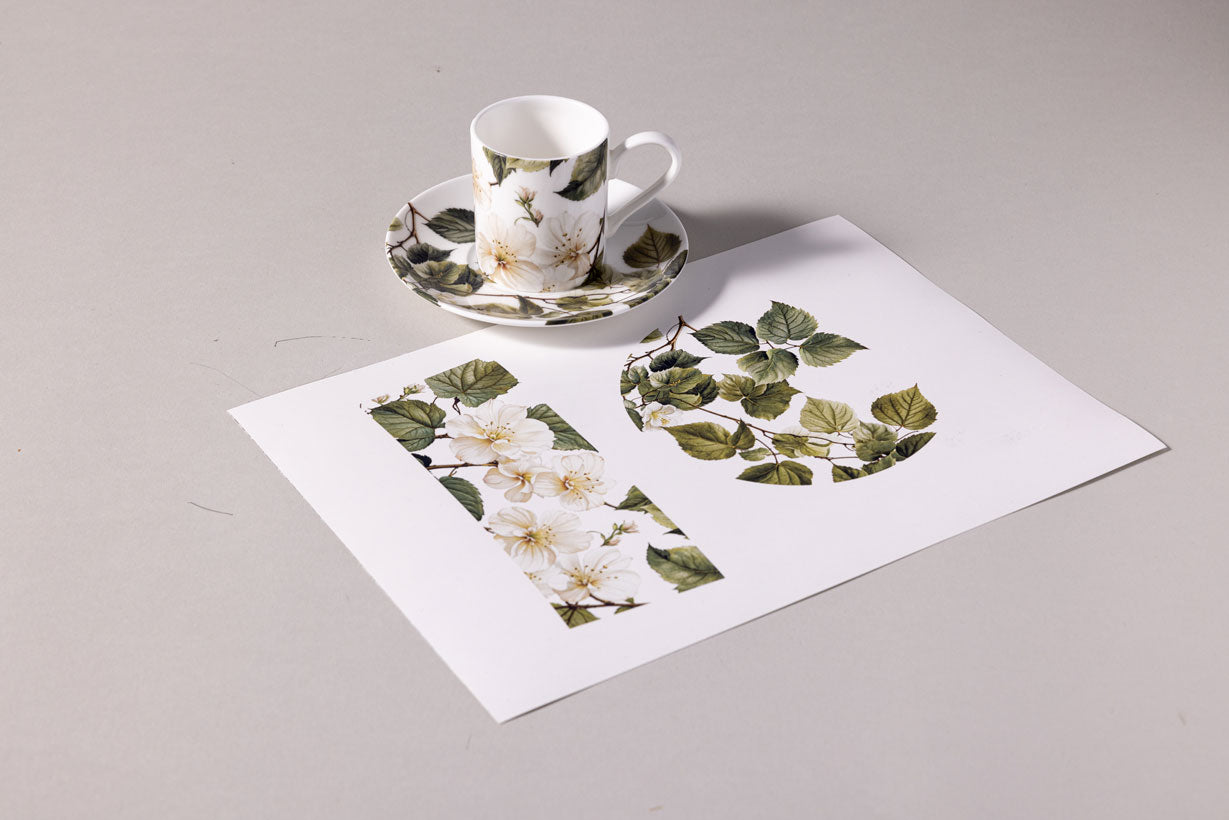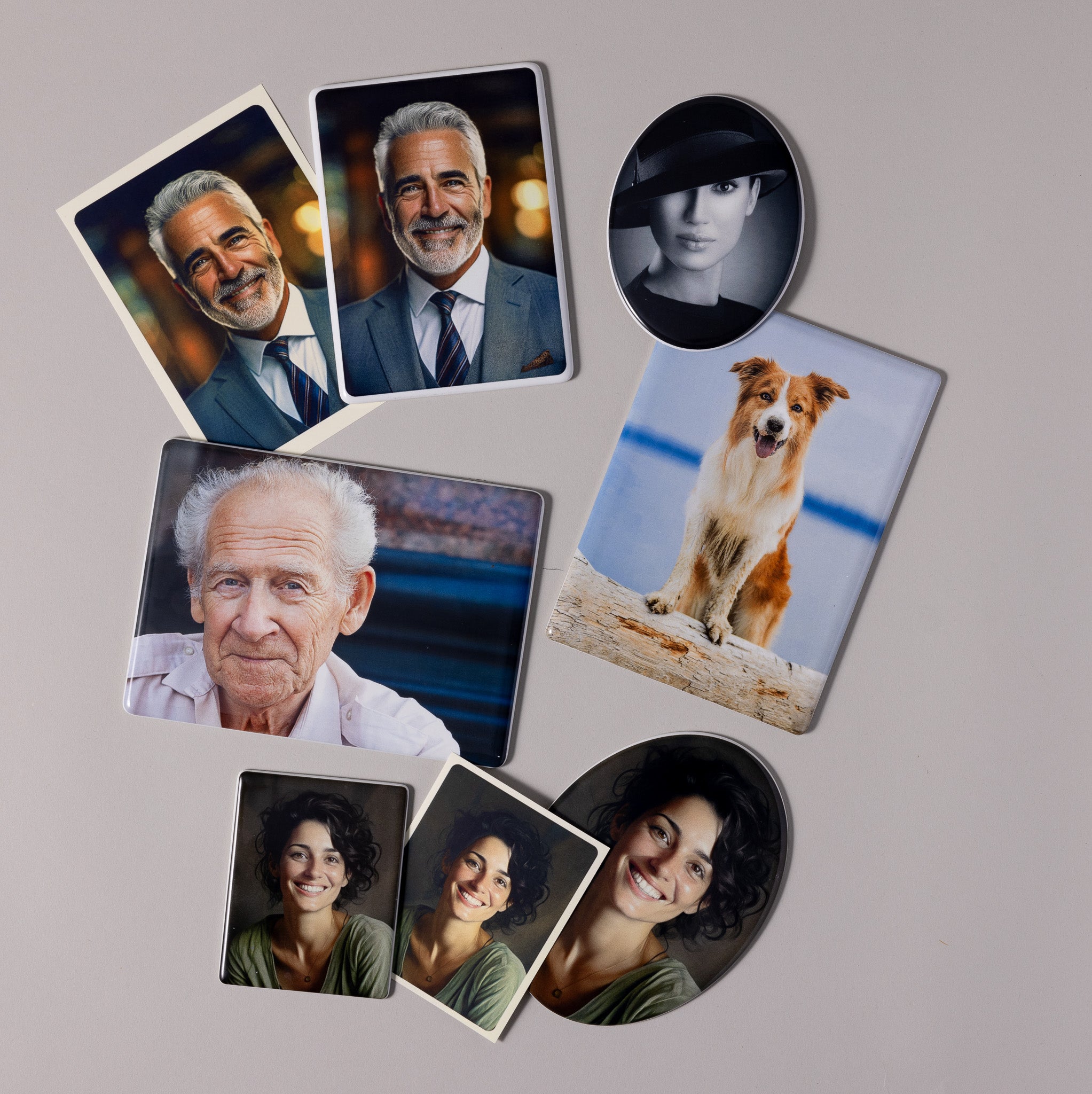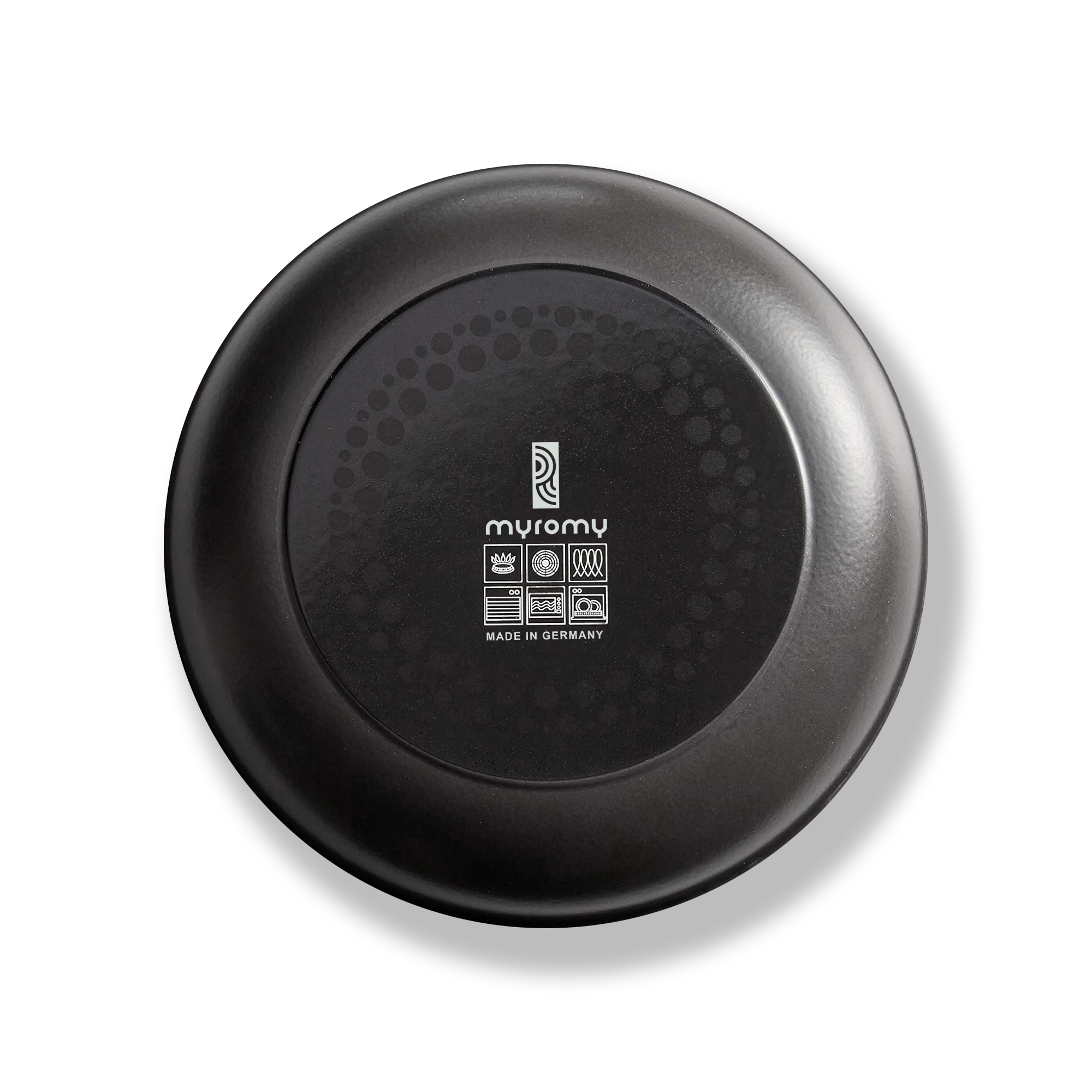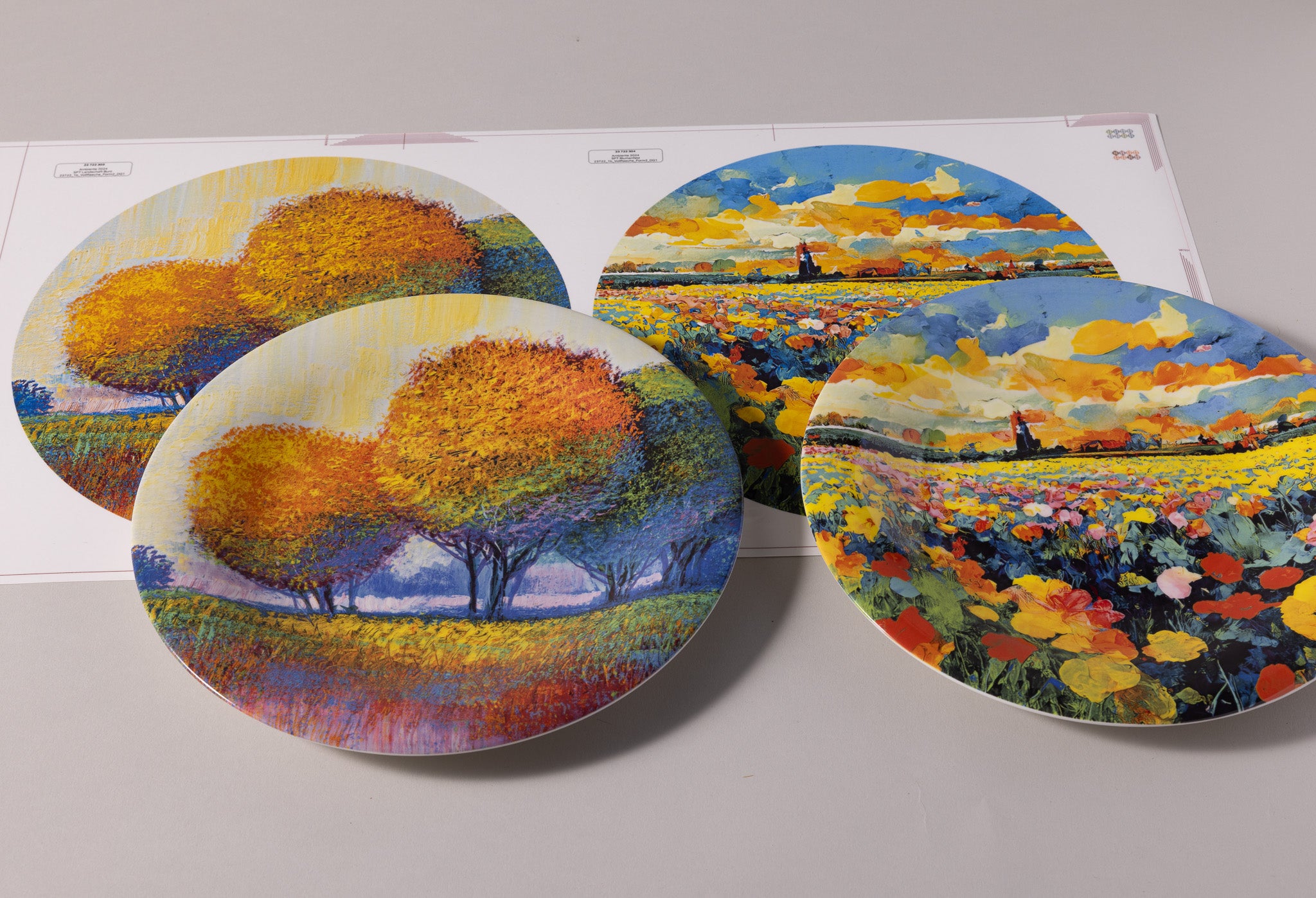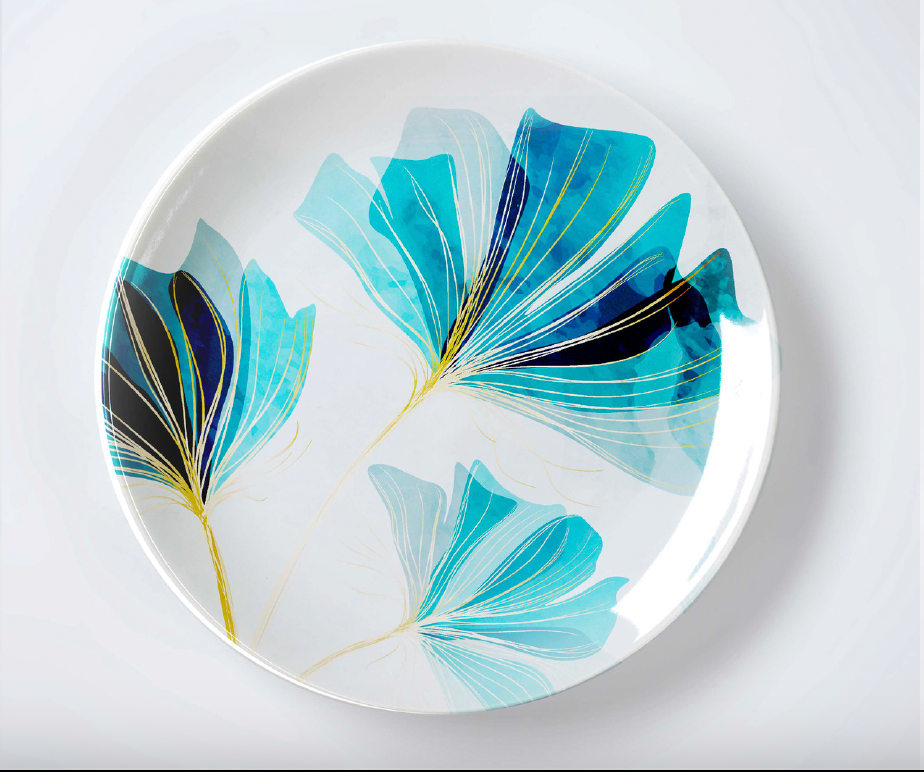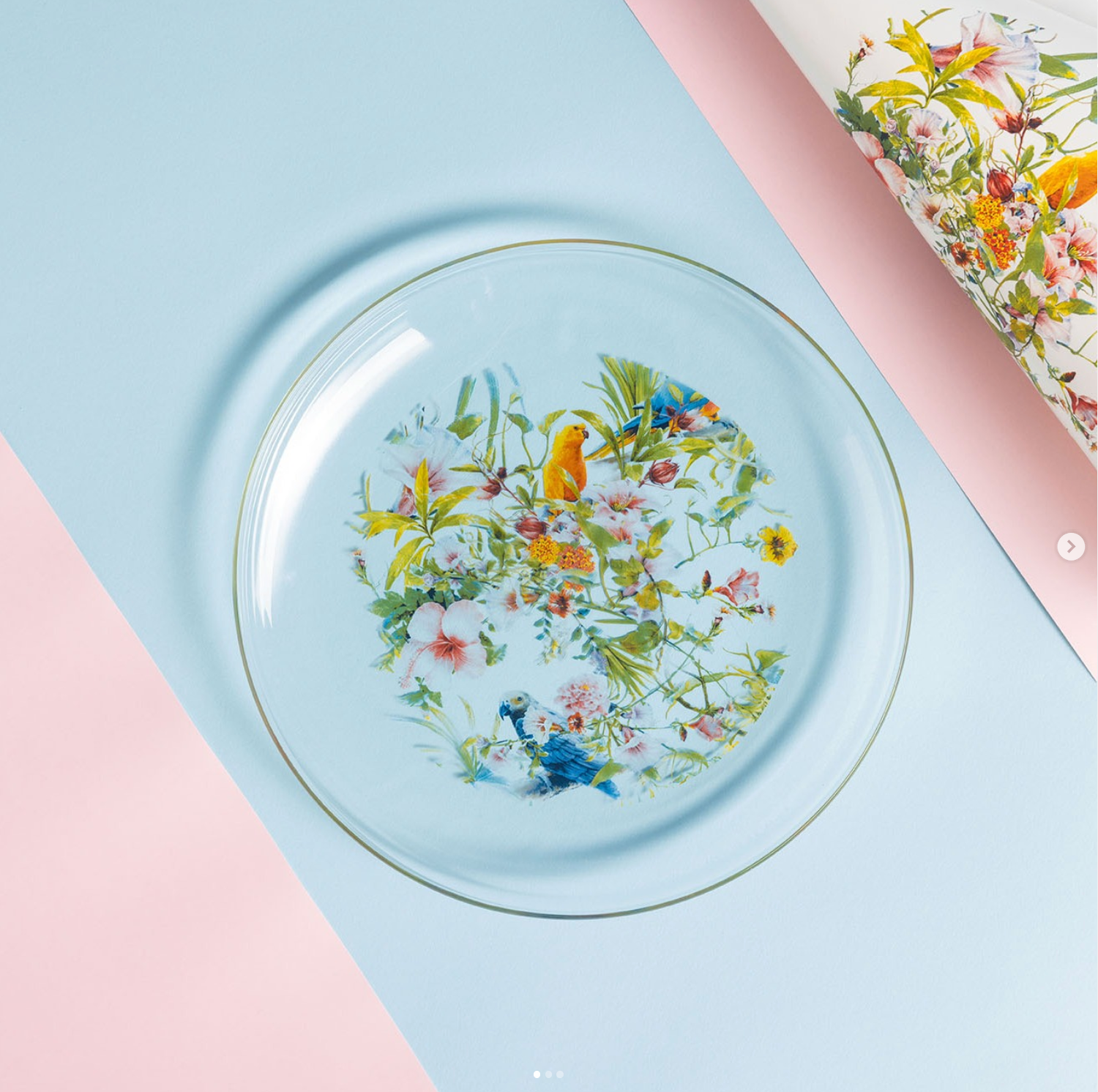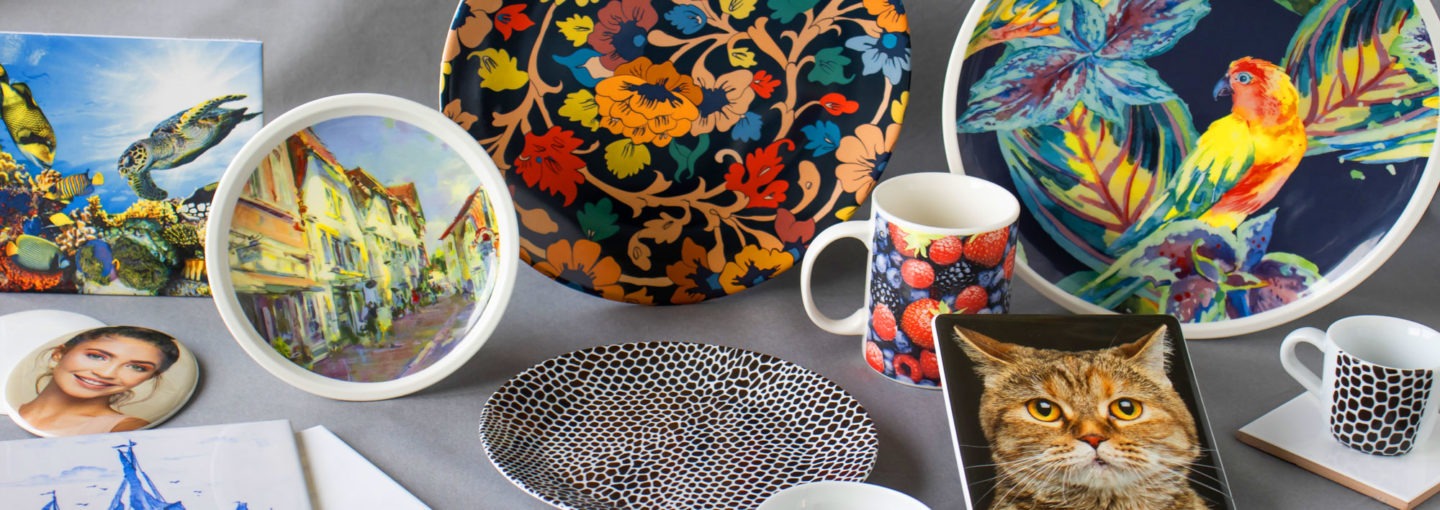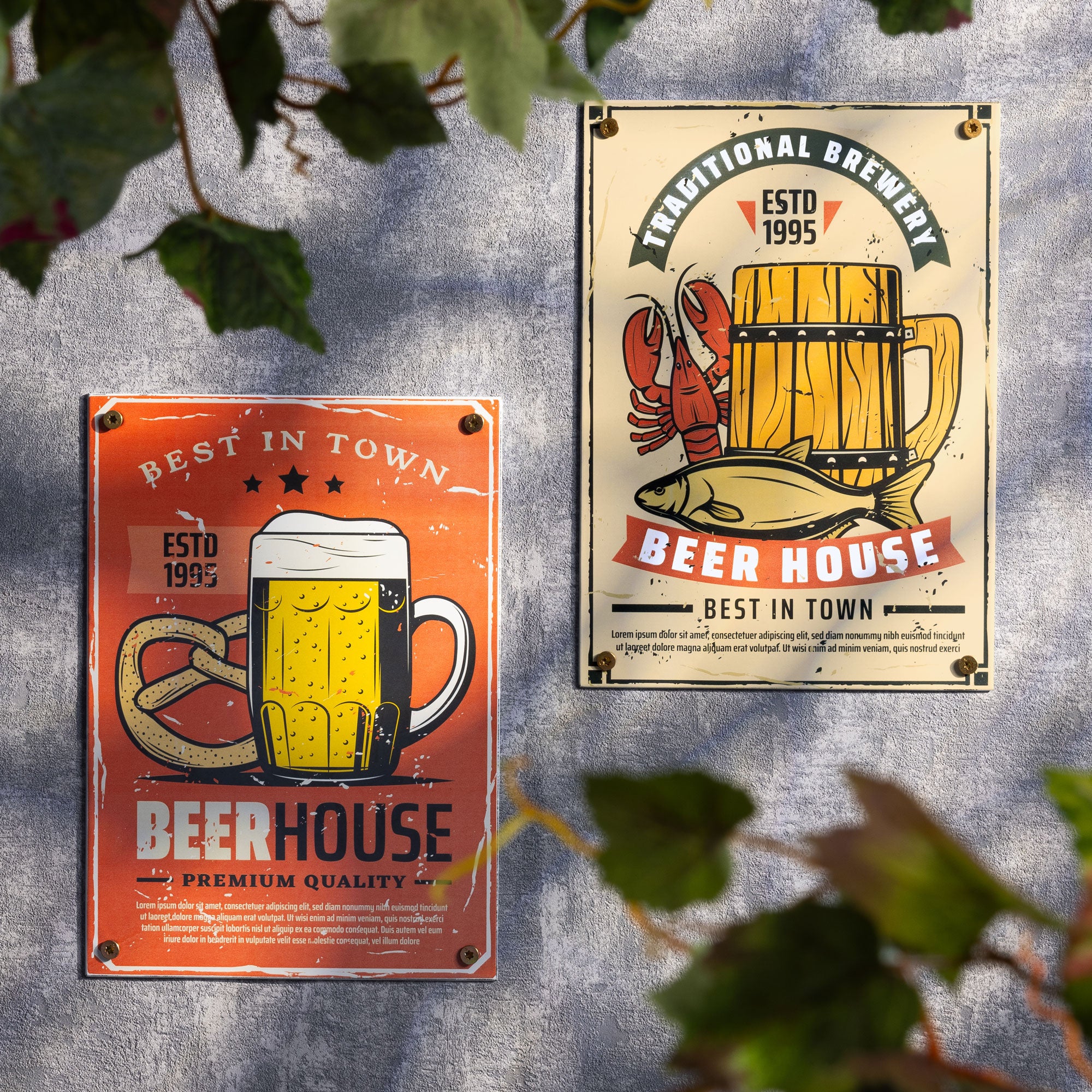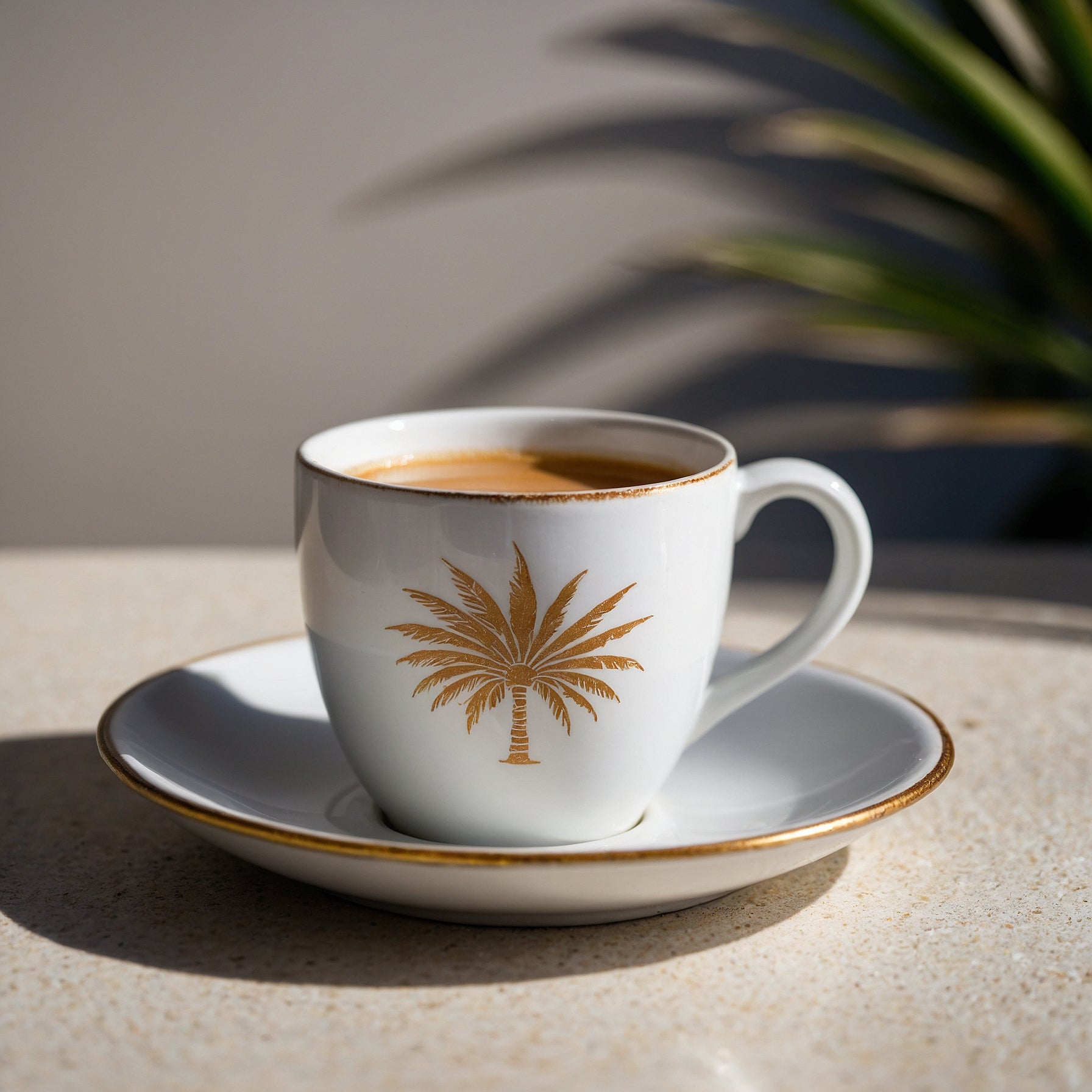
Inventor of the Ceramic Toner – by MZ Toner Technologies
In 1992, the first ceramic toner for digital printing was patented—a milestone set by Michael Zimmer and MZ Toner Technologies as pioneers of ceramic decoration technology. The world’s first ceramic four-color set was also developed by MZ, enabling brilliant, high-resolution decorations on ceramics ever since. In 1993, Michael Zimmer founded the company and the brand ceramictoner, which has been setting global standards in digital ceramic printing ever since.
For over 30 years, MZ Toner Technologies has been driving the development of digital ceramic printing and reliably supplies specially modified ceramic laser printers for small batches as well as industrial serial production. In addition to ceramic toners and digital printing services, the corporate group is also a global leader in ceramic screen printing.
With in-house development, pigment expertise, and technical know-how for industrial and electronic prints, we work for renowned clients such as Villeroy & Boch, Hermès Paris, The Walt Disney Company, Faïencerie de Gien, Vista Alegre, KOHLER, and the automotive industry.
As part of the Newkom Ceramics group, we support our customers holistically—from the initial idea to the final product—with ceramic toners, decals, and specially developed ceramic printers.
The Original – From the Beginnings to Today
Whether for architects, planners, builders, the funeral and memorial industry, artists, or hobbyists: with expertise and practice-oriented product development, customized solutions for digital ceramic printing are created – whether on porcelain, glass, stoneware, or enamel.
At the heart of our work is the simplification and optimization of production and application processes – with the highest quality standards and a focus on resource conservation and sustainability.
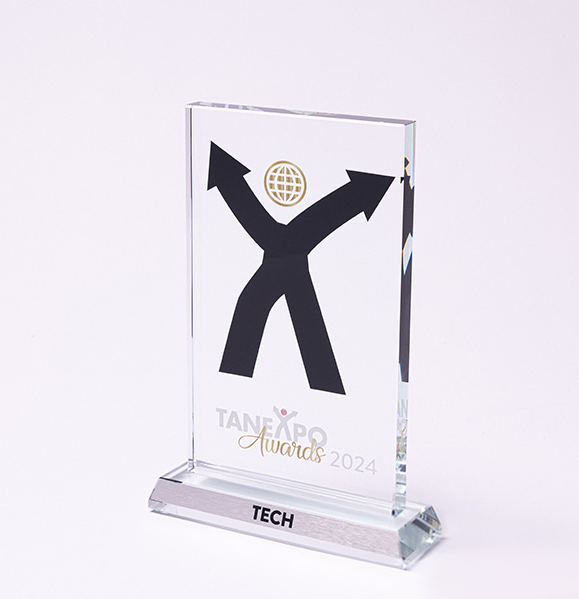
The world's first patented four-color toner
For over three decades, MZ Toner Technologies has stood for globally unique expertise in multicolor ceramic printing – always rooted in decal production through screen printing.
A key milestone is the development of the world’s first four-color toner for ceramic applications, which was patented in 1992 under the direction of Michael Zimmer – a landmark achievement in the history of ceramic printing processes and in the formation of the Newkom Ceramics group of companies.
Among other assets, the group includes its own ceramic manufactory for cast, pressed, extruded, and 3D-printed ceramics, as well as a dedicated specialist company for mechanical engineering and construction.
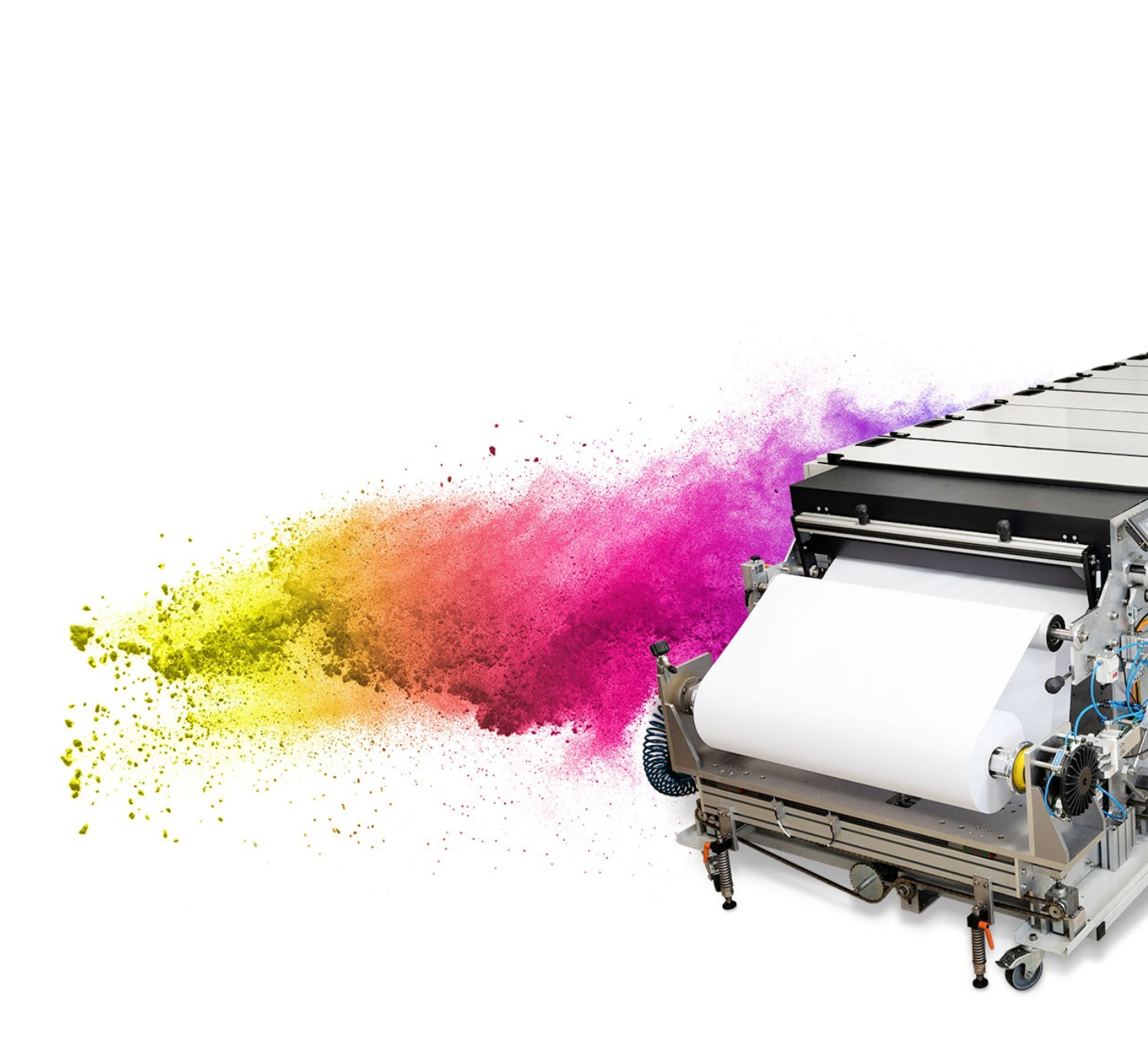
Over 30 years of research and development
Research and development have guided the company since its founding. From mechanical work calibrating printing rollers to groundbreaking digital innovation.
MZ – in the early 1980s on the ChromaCom.
The world’s first digital image processing system of its time
The ChromaCom was a milestone in technology, fundamentally transforming image production – paving the way for the digital printing industry. As a beta tester involved in its development, pioneer and visionary, Michael Zimmer passed on this profound multi-disciplinary knowledge to his son David, who has carried it forward and united it sustainably within the NEWKOM Ceramics group of companies.
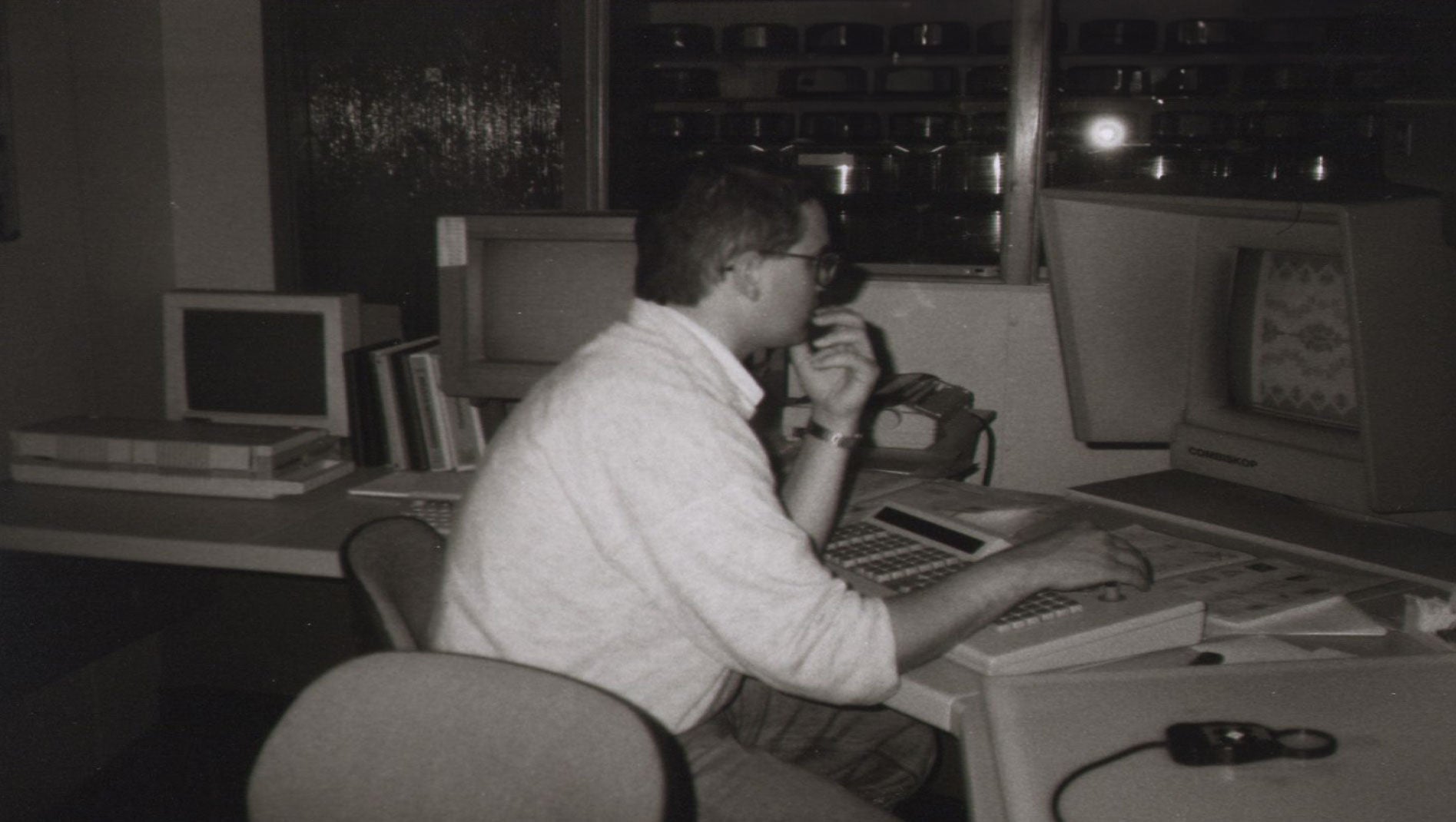
Newkom Ceramics
Based in Germany – 100% Made in Germany.
Newkom Ceramics – a uniquely strong group
• m&r Printdivision – Ceramic & technical screen printing
• m&r Manufaktur – Ceramic products, blanks & design
• Modiqua Engineering – Mechanical engineering, construction, consulting
• DCS Digital Ceramics – Digital ceramic printing service
• MZ Toner Technologies – Research, development, production
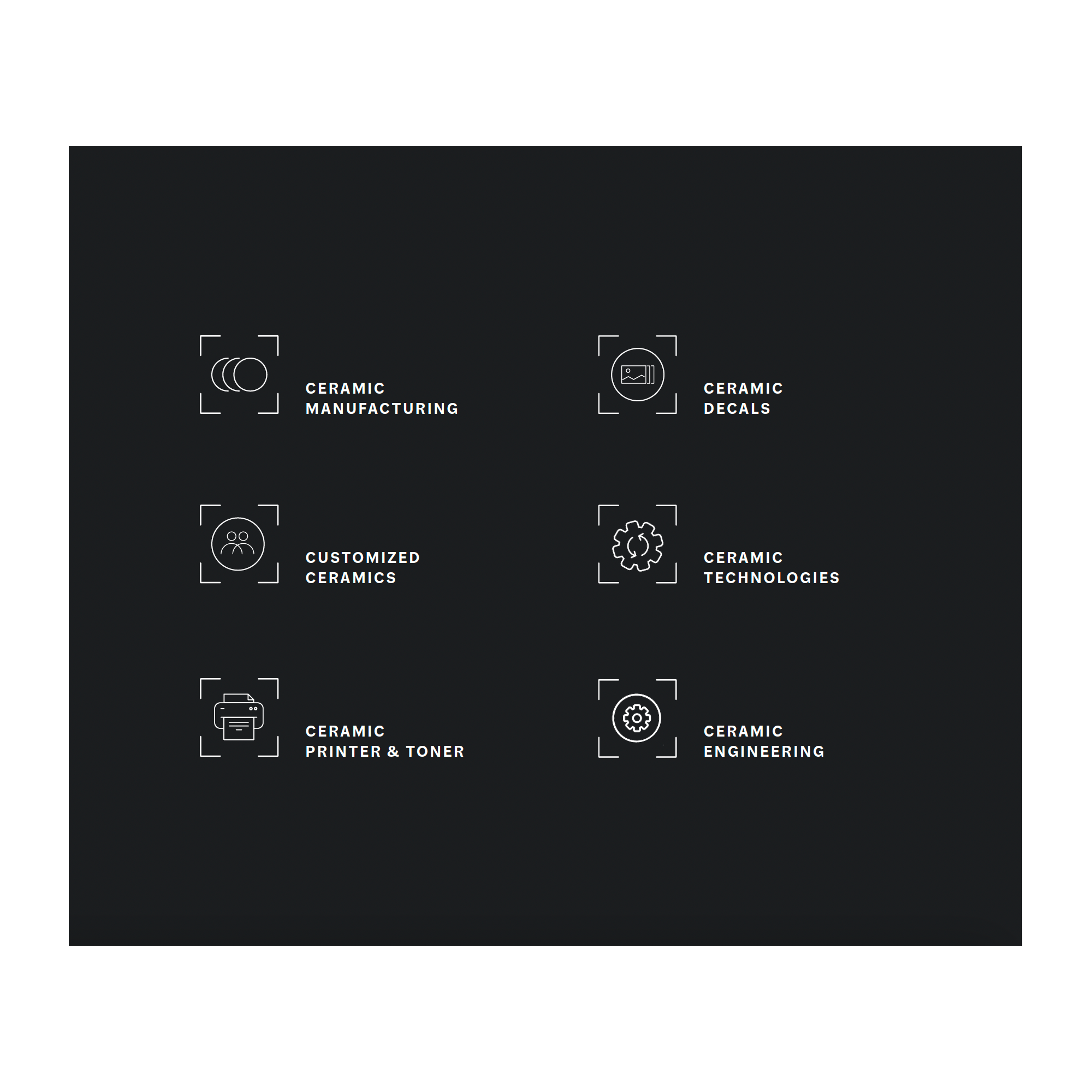

The advantages of ceramic digital printing – precision, flexibility and efficiency
Top printing quality with ceramic laser printing Ceramic digital printing with modified laser printers enables razor-sharp image reproduction with resolutions from 600 to 1,200 dpi – ideal for detailed designs such as portraits, illustrations, or logos. The result: brilliant colors and impressive sharpness, even on complex surfaces. Flexible work without production downtime Unlike screen printing, the digital process does not require time-consuming motif changes.
New designs can be loaded at any time – with zero setup time. This saves time and costs, especially for small runs, personalized pieces, or flexible series production. Printing independent of substrate location Digital printing is done on a special water-slide decal transfer paper, meaning the object to be decorated does not have to be present during printing. The decals can be pre-produced, stored, or shipped worldwide and applied to the substrate later – ideal for decentralized production or on-demand projects.
For hobbyists and artists: Single pieces, small series, one-offs, artworks – design ceramics and refine blanks like mugs, tiles, or decorative objects with brilliant colors and food-safe toners.
For the funeral, memorial, and signage industry: High-quality porcelain plaques and enamel signs, memorial plates with photo-realistic images and razor-sharp texts – weather-resistant, abrasion-proof, and colorfast for eternity.
For architects and designers: High-impact façade and interior projects – ceramic construction and design elements allow the realization of sustainable ideas with deep color effects and a positive environmental footprint.
For industry and porcelain manufacturers: Scalable just-in-time solutions for decor and design starting from quantity 1 – with significantly lower unit costs for material and the environment compared to screen printing.
For promotional product manufacturers & finishers: Mugs, plates, signs, tiles, porcelain panels – company logos, anniversary designs, and texts can be applied with high quality and permanence – ideal for corporate branding.
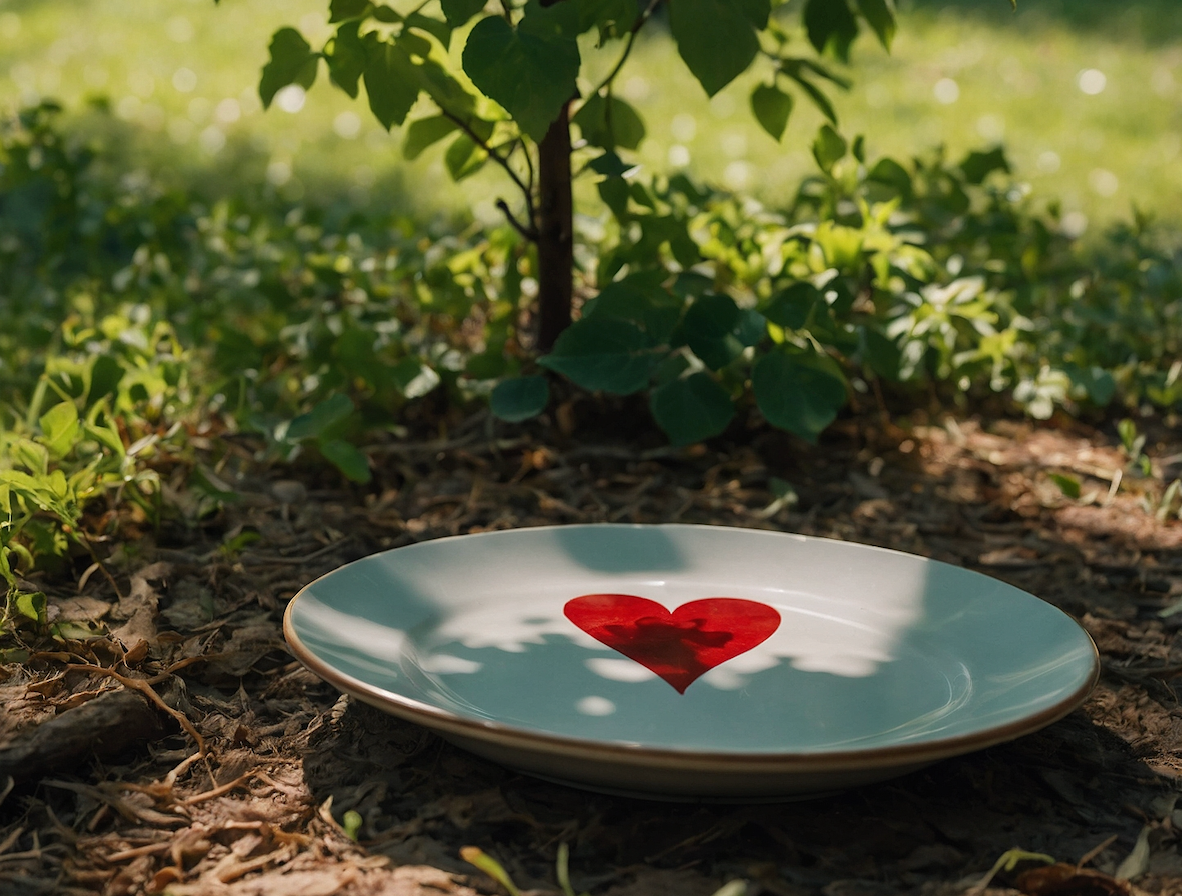
Ceramic digital printing with modified laser printers enables razor-sharp image reproduction with resolutions of 600 to 1,200 dpi – ideal for detailed motifs such as portraits, illustrations, or logos.The result: brilliant colors and impressive sharpness, even on complex surfaces.
Unlike screen printing, the digital process does not require complex motif changes. New designs can be loaded at any time – with zero setup time. This saves time and costs, especially for small quantities, personalized one-offs, or flexible series production.
Digital printing is done on a special water-slide decal transfer paper, which means the object to be decorated does not need to be present on site. The decals can be pre-produced, stored, or shipped worldwide and transferred to the substrate at a later time – ideal for decentralized production or on-demand projects.
After printing and transferring, the decoration is fired at temperatures between 580 and 1250 °C. The inorganic pigments used permanently fuse with the glaze or surface, resulting in an extremely durable decoration that is resistant to UV radiation and chemicals.

